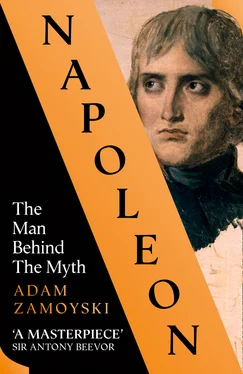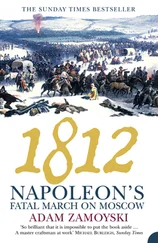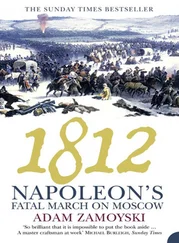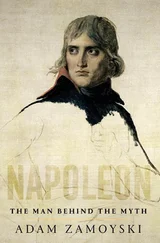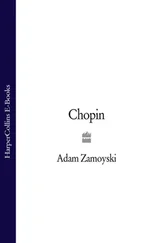A potentially more useful acquaintance was Paul Barras, who had also been at Toulon. His chequered past included fighting the British in India, voting for the death of Louis XVI in the Convention, a minor role in the downfall of Robespierre, and the defeat of a royalist attempt to overthrow the Republic. A spell as commissary to the army had provided the opportunities for graft which enabled him to acquire considerable wealth, with which he indulged his love of luxury and women. He had turned his Jacobin coat inside out, surrounding himself with a court of roués and courtesans, and would have welcomed another ex-Jacobin with a realist’s ability to change his tune, but Barras trusted nobody. There had been Jacobin riots a few days before Buonaparte’s arrival, and the political situation remained unstable, with people representing every shade of revolution and counter-revolution manoeuvring in a kaleidoscopic succession of alliances and realignments. Barras would see no point in helping Buonaparte until he needed him. But he did take him under his wing to keep in reserve.
On 13 June Buonaparte received his posting to the Army of the West under General Lazare Hoche, operating against royalist rebels in the Vendée. He had no intention of going and obtained sick leave until 31 August, which gave him time to consider his options.
The fall of Robespierre had put an end to the Terror, and the resulting release from fear produced an eruption of hedonism. Buonaparte was astonished at the extent to which the people of Paris threw themselves into a life of pleasure. ‘To dance, to go to the theatre, to parties out in the country and to pay court to women, who are here the most beautiful in the world, is the main occupation and the most important thing,’ he wrote to Joseph. ‘People look back on the Terror as on a bad dream.’21
Antoine Lavalette, a contemporary of Buonaparte, was horrified at what had happened to his native city, where ‘the dissolution of society had plumbed new depths’. He noted disapprovingly that ‘it was the newly rich who sought to set the tone, combining all the errors of a bad upbringing with all the ridicule of an inborn absence of dignity’. He was shocked at the ‘barely believable level of licentiousness’ on display, at the ‘lovely, well-bred women of high birth’ who ‘wore flesh-coloured pantaloons and buskins on their feet, barely covered by dresses of transparent gauze, with their breasts uncovered and their arms naked to the shoulder’. As another explained, ‘The aim of these ladies and the ne plus ultra of their art was to show as much nudity as possible without being naked’. Some moistened their dresses with oil to make them cling to the body.22
There were balls to which only relatives of those who had been guillotined were invited, in some cases held in prisons where the September massacres had taken place, at which the guests wore a red ribbon round their necks in a gesture somewhere between gallows humour and exorcism. Buonaparte may have been shocked, but he showed understanding of people’s need to compensate for the sufferings and the anxieties of the past – and he was a good deal less censorious than Lavalette when it came to the nouveaux riches .23
A disastrous economic situation and a financial crisis provoked by the vertiginous fall in value of the paper currency, the assignats , coupled with the emigration or execution of nobles, entailing the confiscation of their property, meant that there were a large number of properties on the market. People who had grown rich during the Revolution were desperate to park their depreciating cash in solid assets, creating a febrile market in which there was money to be made. On leaving Châtillon for Paris, Buonaparte had made a detour to view a country house at Ragny in Burgundy. ‘The château itself consists of a new residence or pavilion in the modern style,’ he wrote to Joseph on 22 May, going on to list its merits and pointing out that if the turrets which gave it ‘an aristocratic look’ were demolished it could be marketed as a splendid residence, with its ‘superb’ dining room four times the size of their old one in Ajaccio.24
The pursuit of pleasure had spawned a taste for luxuries of every kind, and some were scarce in Paris. Three days after reaching the capital Buonaparte took time off from promoting his career to research the price of sugar, soap and coffee. As it was far higher than in Marseille, he instructed Joseph to buy up a stock there and ship it to Paris. Ragny had been sold, he informed his brother a few weeks later, but there were plenty of other investment opportunities.25
At the beginning of July he reported that he had put in hand the sale of the coffee Joseph had sent, and urged him to buy up in Genoa, where the Clary family had moved, silk stockings, shawls, and Florentine and English taffeta (which would have to be imported into France through Leipzig, since Britain and France were at war), all of which were at a premium in Paris. He had succeeded in finding a sales outlet in Paris for Joseph Fesch, who had set himself up in the porcelain trade in Basel in Switzerland. He even urged Joseph to investigate the price of pasta in Italy, as the food shortages in Paris might make it worthwhile to import that. He had located a promising property in the valley of Montmorency, and was looking for others. He wanted Joseph to finance these speculations, but he also identified ways of buying on credit and selling on at a profit before having to realise the purchase. If only Joseph had followed his first suggestion, he complained, they would have made a million. Buonaparte could see people making fortunes all around him, and was exasperated by Joseph’s lack of interest.26
Naturally lazy, Joseph had no wish to hazard his easily acquired fortune in property speculation. He had followed the Clary family to neutral Genoa, where they had managed to take most of their money with them and from where they carried on their Levantine trade. Joseph was living well, and supporting his mother and sisters at Château-Sallé. Yet he badgered Buonaparte to use his influence to obtain for him a post as French consul in some trading city in Italy or the Levant, where he would be able to benefit from the salary and use his position to further his commercial activities. ‘We have lived so many years so closely bound together that our hearts have become entwined,’ Buonaparte wrote back, promising to try. ‘You know better than anyone how profoundly mine is entirely devoted to you.’27
He had managed to place Louis in the officers’ school at Châlons, which was costing him a considerable share of his half-pay, and was exploring the possibilities of getting the youngest, Geronimo, into school in Paris. He had used his connections to free Lucien – ‘Brutus’ had got himself arrested for his Jacobin connections. He found Lucien tiresome, impudent and irresponsible, ‘a born intriguer’, but he was family.28
In the culture to which Buonaparte had been brought up, the family operated as a clan, providing a security which he was missing in Paris. Although he was now twenty-five years old, and had been through a great deal over the past few years, he was still in many ways a child, with his displays of aggressive defensiveness and of emotion clothed in cynicism. Yet he was now having to deal with a complex set of challenges and sensations, and was emotionally torn between two different worlds. The one associated with Désirée held strong appeal.
Joseph’s was a perfect match. The Buonaparte and the Clary were grounded in the culture of the Mediterranean with its mainstay of the family. Both families were bent on financial and social advancement, but were essentially middle-class in outlook. Their aspirations to noble status were driven by material rather than ideological motives, and had nothing in common with the supposedly chivalric impulses of the noblesse . Nor were they bound by its prejudices.29
Читать дальше
